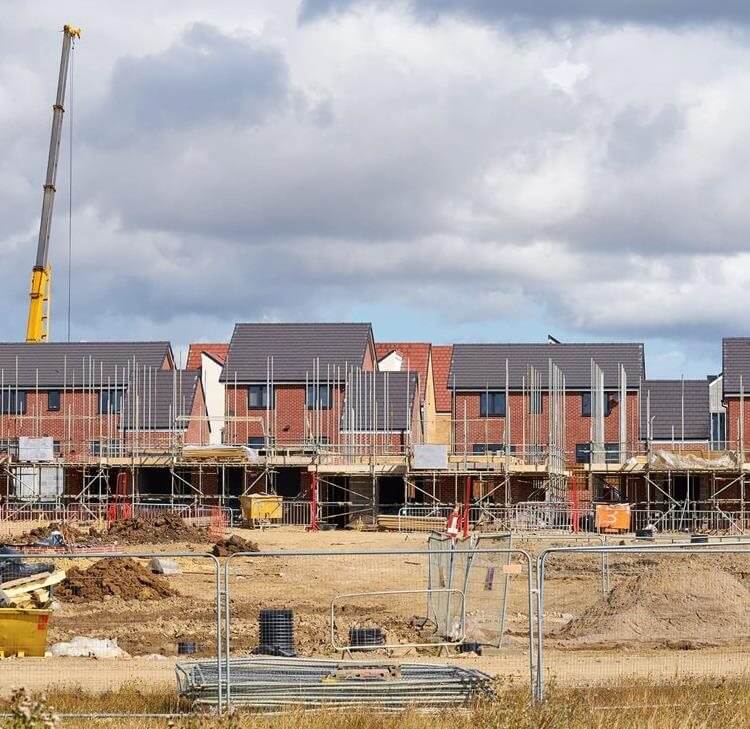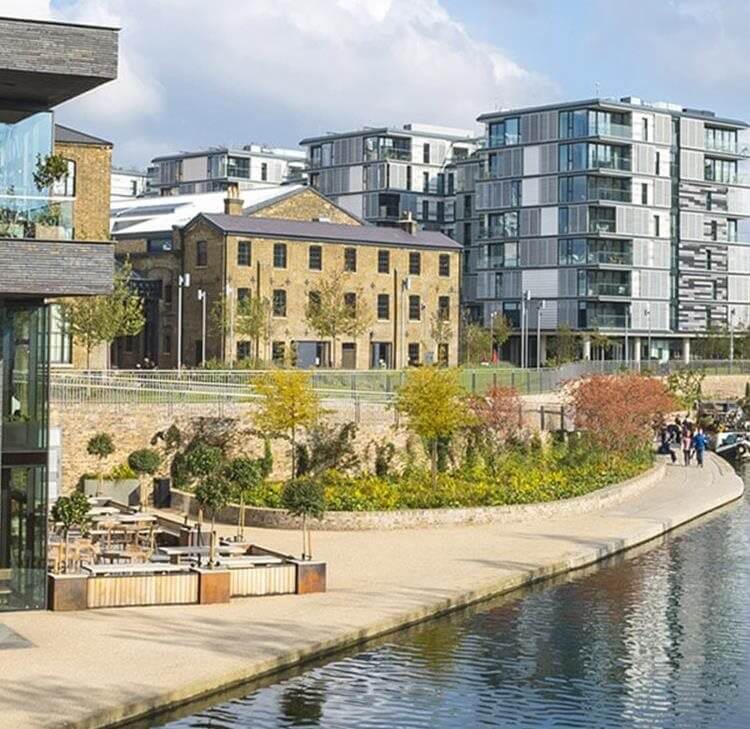We started by looking at whether it was possible to define what 'the community' is when considering 'high streets'. The high street is, by its very nature, a hub for a variety of users.
There are the people who live there or nearby, there are the businesses and their employees, and there are the end users.
Do all these different voices need to be heard and should some stakeholders have a greater say in changes?
Nimbyism
Looking at people who live in communities swiftly brought up the subject of 'nimbyism'.
Many of the panel could share an experience of the challenges a well-organised and funded residents’ association can cause. However, Julian Hart, senior regeneration manager at Watford Borough Council, believed this was less of any issue on the high street as there are fewer people living there.
Economic benefits and infrastructure
Morgan Reece, a partner at Montagu Evans, endorsed the idea of bringing residential development to the high street but flagged that trying to build a community around it can be challenging.
In Watford, physical constraints have created a focus on increasing residential accommodation in the city centre. Julian highlighted the economic benefit of driving local spend to support retail, along with the advantage of having less need to build physical infrastructure because it’s already there.
Alexander Harris, legal director at Browne Jacobson, questioned whether that was always the case. He cited the Earl’s Court redevelopment (an 80 acre site), where significant challenges to infrastructure have arisen, with the increase in users on travel networks and energy supplies.
Nalin Seneviratne, a director at Porter Brook & Associates Ltd, reflected on his experiences as the former Director of City Centre Development at Sheffield City Council. He spoke of how there is an underutilisation of Sheffield city centre, which does not make the most of its infrastructure, such as the tram network, and this needs to be brought to the fore.
The local plan aims to increase the city centre population by 20,000 people and engaging with these new residents is key to ensuring that they have a vested interest in the future city centre developments.
Heritage concerns were a potential blocker to the plans due to concerns over development of conservation areas but active engagement with the interested parties proved key in getting projects going and to attracting independent retailers into the city centre.
Human connection
Jessi Haymon-Gorlov, head of property at Patch Places Ltd, believes town centres must move away from focusing on the retail offering to areas such as hospitality.
There needs to be a reason to travel there, which requires a strong vision of what an area can offer and how you can deliver a quality experience. Ideally, there should be a service that you can’t access elsewhere to draw people into the area. The panel felt that there was an increased appetite for socialisation and human connection in urban areas following the Covid pandemic.
Morgan believes the key to successfully designing each offering requires creative asset management. Filling too much space with weak offerings should be avoided and more footfall into an area needs to be guaranteed. He strongly believed local authorities should be located in their town centres.
Jez Goodman, senior manager at Cheshire East Borough Council, agreed, pointing out that whilst economic regeneration isn’t a statutory function for local authorities, the wider benefits of helping local businesses meant this should be a priority area for local authorities.
He spoke of his experiences in Crewe, where there was regular engagement with business to fully understand the status of projects, even where the council wasn’t directly involved.
You may be interested in...
Press Release
Browne Jacobson advises ALB Group on acquisition of former M&S department store in prominent Chesterfield town centre building
Press Release
Browne Jacobson returns to UKREiiF 2025
Legal Update
Local Nature Recovery Strategies: A successful step in nature recovery
Press Release
Browne Jacobson advises Norwich City Council on Anglia Square regeneration scheme
Legal Update
Refining the UK subsidy control regime consultation
Legal Update
Navigating the Levelling Up and Regeneration Act 2023: Implications for retailers with vacant premises
Legal Update
Roundtable report: Community engagement in high street regeneration
Press Release
Browne Jacobson sponsors public sector think tank on new report
Press Release
Browne Jacobson advises London Borough of Sutton on major town centre regeneration
Press Release
Browne Jacobson supports Cheadle Market purchase as local authority plans town centre regeneration
Legal Update
Delivering EV charging infrastructure: The local government perspective
Press Release
Browne Jacobson to lead discussions on the future of real estate and infrastructure at this year’s UKREiiF 2024 event
Legal Update
Biodiversity Net Gain (BNG): Are we ready for it?
Legal Update
The Levelling-up and Regeneration Act 2023
Press Release
Browne Jacobson advise North East Lincolnshire Council on Property Sale
Press Release
Browne Jacobson advise Platform Housing on landmark deal, creating over 300 affordable and sustainable homes
Press Release - #BeingBrowneJacobson
Building our future town centres: advising local authorities on landmark acquisitions
Legal Update
Higher-risk buildings – are you ready for 30 September 2023?
Legal Update
Utilising prime retail sites to improve the health of our nation
Legal Update
Retirement housing: A solution to our care and housing crises?
Legal Update
Back in the (Investment) Zone… sort of
Legal Update
A new era of opportunity for high street regeneration?
Legal Update
Regeneration: what role can universities play?
Legal Update
Section 106 Agreements: I’m not dead yet
Press Release
UK and Ireland law firm Browne Jacobson joins UKREiiF 2023
Published Article
Combined County Authorities - Key differences to Combined Authorities
Legal Update
Biodiversity Net Gain — Government publishes consultation response
Opinion
‘Awaab’s Law’- a significant amendment to the Social Housing Regulation Bill
Press Release
Browne Jacobson’s real estate specialists advise Chesterfield Borough Council on prestigious new development - One Waterside Place
Press Release
Browne Jacobson advise High Peak Borough Council on future high street funded acquisition as part of Buxton regeneration vision
Published Article
What are freeports and what benefits could they offer?
Legal Update
Biodiversity Net Gain: positive for nature and an opportunity for landowners
Legal Update
Improving the performance of the NSIP planning process and supporting local authorities
Legal Update
Regeneration funding: Securing Compulsory Purchase Orders in the face of escalating building costs
The focus on the Levelling Up agenda and the availability of grant funding, means there are numerous important regeneration schemes actively being pursued across the country. With ever-escalating project and building costs, in many cases, applications that were made for grant funding were based on costs contingencies that have already been exceeded.
Legal Update
Conservation Covenants – what are they and how will they affect you?
Published Article
Levelling up – the role of public and private partnerships
With aims to level up the UK, and ensure that everyone has the opportunity to flourish, public and private partnerships will be critical success factor. In this article, we look at the role that private finance can play in the performance of a local area and how it might link to regeneration. We also consider the role of central government and regional mayors.
Opinion
Responding to Grenfell – Slow progress is better than none
As the Grenfell Inquiry continues, how have the Phase 1 recommendations changed the fire safety and building safety landscape?
Legal Update
Balancing homelessness duties and housing stock: all change?
On 4 May 2022, the Court of Appeal handed down judgment in the joint case of R (Elkundi and others) -v- Birmingham City Council and R (Imam) -v- London Borough of Croydon [2022] EWCA Civ 601.
Published Article
Queen’s speech: planning reforms to be tackled via Levelling up Bill
Legal Update
Is this the end of Section 106?
The Levelling-up and Regeneration Bill was introduced to Parliament on 11 May 2022. In this Bill, and in accordance with earlier reports, the government intends to replace section 106 agreements and the existing Community Infrastructure Levy (CIL) with a new Infrastructure Levy.



































